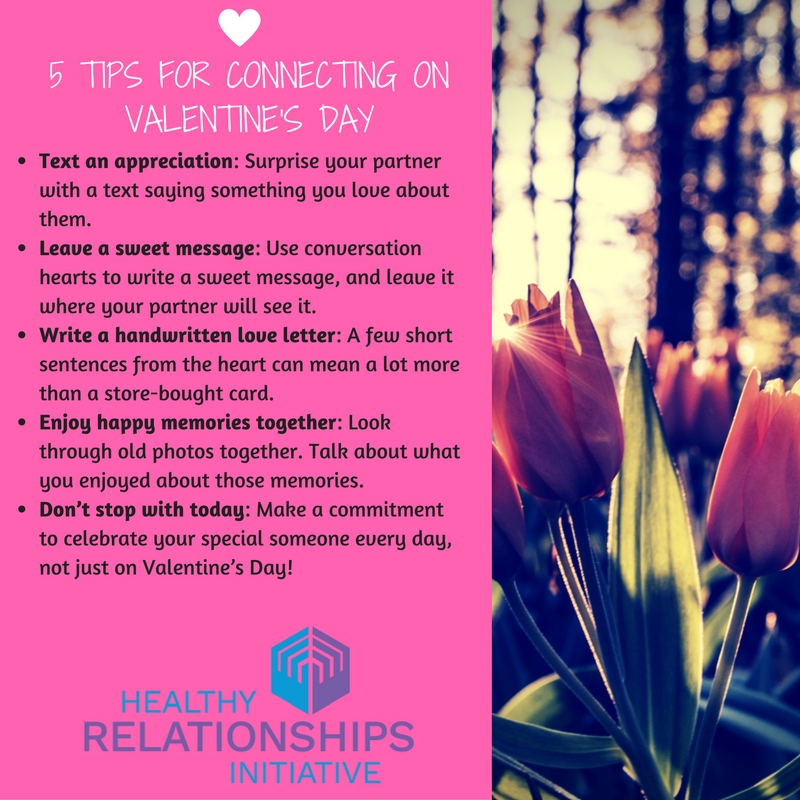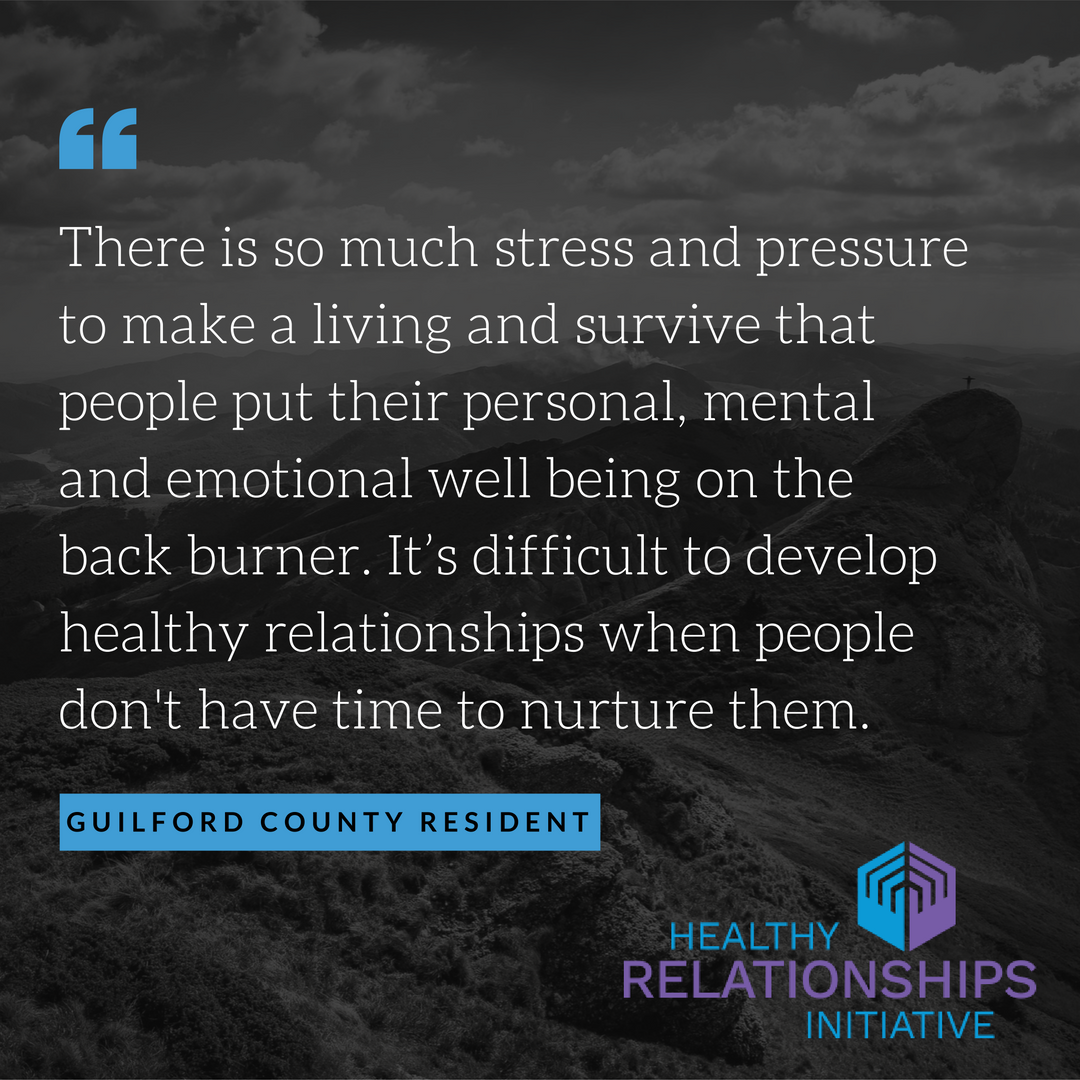
As we launch Healthy Relationships Initiative this month, we want to introduce you to the leaders of HRI. Today, we’re featuring Shelley Ewing, who is Project Coordinator for HRI.
Tell us a little bit about your professional background and how it connects to your work with the Healthy Relationships Initiative.
I spent the first 15 years of my professional life in higher education at both public and private institutions in various roles, and in the last year I served as the program director Guilford Education Alliance. In addition to my work, I volunteer with Hospice and Palliative Care of Greensboro helping families cope with the effects of terminal illness and the loss of loved ones. I think the thread that connects all three of these experiences with my new role as project coordinator is the sense of purpose I find in providing others with the resources they need to empower themselves.
During my time as an admissions counselor, my role was to assist students as they navigated the college search and application process and to provide families with the support they needed during the transition from high school to college. While working as an academic adviser I assisted students with academic planning, course selection and registration. These responsibilities were the official duties of my positions, but that’s a limited view of what I did on a daily basis. What the work really entailed was working closely with students and their families to understand their hopes and dreams as well as the potential challenges that stood in the way of a successful college experience. In order to understand the needs of my students, I developed healthy and safe relationships with them and encouraged them to do so with other staff and faculty on campus. These relationships with advisers, faculty, and staff in various departments served as a support system for them to navigate college life. My goals were to always be a safe person for my students and to help them find the courage to do the things they wanted to do.
The fulfilment I got from those experiences lead me to a career in nonprofits. I was fortunate to work with the wonderful team at Guilford Education Alliance helping advocate for the students and teachers of Guilford County. While there I helped the organization transition to a new facility, assisted with the redesign of their popular Teacher Supply Warehouse program, and coordinated annual community outreach events including Principal for a Day and the Education Summit. That hooked me on working in nonprofits, so that’s why I am thrilled to have this opportunity to connect all my experiences with my passion for helping others in the community!
Why are you excited to be involved with the Healthy Relationships Initiative?
I’m excited about the community outreach opportunities that an initiative like this brings to Guilford County, and I’m looking forward to contributing to the wonderful work already underway. I hope to use my experience in project management to assist with organizing events that are substantive, compassionate, and accessible to those interested in learning more about fostering positive relationships. True to its mission, HRI has already organized several community events, from Sundays Unplugged at the Greensboro Children’s Museum to a workshop on Tech Safety in Teen Relationships in an effort to infuse the local community with information, resources and services to promote happy, healthy, and safe relationships.
Since there isn’t one perfect way to create healthy relationships, I think attending a variety of these events allows participants to take information from each presentation and build their own understanding of what it takes to have healthy relationships. That’s the beauty of this initiative. It’s not a paint-by-numbers program that will eventually equal a magically perfect relationship. It’s a road map to understanding all the different ways you and your loved ones can work together to create healthy relationships for your unique situation.
If you could change one thing about relationships in our community, what would you change?
I have to echo Christine’s thoughts here, one of the biggest hurdles to healthy relationships, and emotional well-being in general, is the stigma attached to admitting there’s a problem and seeking help in times of distress and conflict. I would like to see these challenges addressed by implementing special programming in our schools from Pre-K to college with an emphasis on recognizing early signs of relationship distress and practicing techniques that empower and encourage students to create healthy, happy and safe relationships.
How have your own experiences with relationships and your family influenced your thinking about the Healthy Relationships Initiative?
Like many people, I have experienced some truly wonderful relationships and some really terrible ones! Given the ups and downs of life, I think I could have benefited from early training on how to effectively communicate my needs to my loved ones in the midst of distress and conflict. Reflecting on my experiences, I feel that with the right information and support I would have been better prepared to understand and deal with complex issues as I transitioned into different stages of life. This is why HRI is important to me. HRI’s goal to provide community support that focuses on establishing and maintaining healthy relationships for all ages is an initiative I can be proud to support and learn from.
What do you think is the #1 key to a happy, healthy, and safe relationship?
There are several components to happy, healthy, and safe relationships listed here, that I firmly believe in, but my all-time #1 has to be FUN. So much of life is demanding — think crazy work schedules, financial responsibilities, soccer practices, and meal planning — that over time we experience a tremendous amount stress just living our daily lives. It is so easy to focus on the negatives in life or the craziness of this week’s schedule, but adding fun to the day helps focus interactions on positive emotions and makes for more fulfilling relationships of all kinds.
Something that my husband and I do every day is make each other laugh out loud. And, by the way, for us it’s not enough to share a smile about a joke on TV or something funny that was said in passing. We are aiming for a full-belly-laugh or at least a few out loud giggles. It’s almost a competition between the two of us to see who can make the other one laugh the hardest! We love to connect over something that brings us both so much joy.












